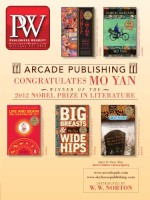Digitization proponents and library advocates hailed the October 10 decision in the Authors Guild v. HathiTrust case as an unequivocal, emphatic victory for fair use. In the ruling, “Judge Baer added another brick to the wall of precedents holding that search engine indexing is a fair use,” James Grimmelmann, New York Law School professor and PW contributing editor, wrote on the PWxyz blog. “The Authors Guild had argued that the right to index only extends to material already online. By rejecting that argument, the decision gives search engines a green light to seek out other untapped reservoirs of information. Perhaps it will also give other search engines the confidence to start scanning books in copyright.”
But as the dust settles, the decision is also reverberating as a loss for the Authors Guild on more than fair use. “Not only did the Authors Guild strike out on its theories of copyright law,” explained Grimmelmann, it also lost on a minor but “crucial” procedural issue that, if left to stand, “could haunt it in the future.” Baer’s decision held that the association lacked the legal standing to sue for infringement. Specifically, he found that because the Copyright Act states that only “legal or beneficial” owners are entitled to sue for infringement, other parties are therefore excluded. The net effect: the Authors Guild, as it stands, is now “permanently barred from bringing copyright lawsuits on behalf of its members,” Grimmelmann explained. And unless Baer’s decision is overturned on appeal, that could stand as “a real blow to [the Guild’s] institutional status as a legal advocate for copyright owners.”
The only public response the guild has made to date on the HathiTrust case is a statement on its Web site stating that it disagrees with “nearly every aspect of the court’s ruling” and would announce its next steps shortly. But observers agreed that the decision ramps up the pressure on the Authors Guild to appeal, and complicates any potential settlement, like the one reached by publishers with Google earlier this month.
“It does appear to be a situation now where the guild has to appeal,” said copyright attorney Lloyd Jassin, who described the associational standing aspect of the ruling as “an unintended consequence.” Jassin compared the guild’s legal battle over book scanning to a Vietnam-like conflict, where the guild was led in by principle, and now must find a way to get out.
Jassin stressed, however, that the associational standing issue is far from a fatal blow to the guild’s copyright advocacy efforts, should it stand. The Authors Guild could still support copyright litigation by supporting individual member plaintiffs, for example, or through PR and education efforts. “Don’t count the guild out,” he told PW. “This doesn’t demolish the notion that authors need protection.”
The Hathitrust decision does, however, inflict a potentially serious wound on the guild’s main class action case against Google. In one of the few positives in the decision for the Authors Guild, Baer supported Judge Denny Chin’s May 31 ruling that granted the guild associational standing on a “constitutional” basis. Chin’s ruling, however, is currently on appeal to the Second Circuit, and Baer’s denial of standing on “statutory” grounds certainly complicates matters. And even if the guild manages to sort out its standing issue, there remains the forcefulness of Baer’s fair use ruling itself.
“This is a pretty serious blow,” Grimmelmann said of the decision’s effect on the main class action. “The fair use ruling is substantially applicable to Google. Yes, Google is commercial, but the transformative use and the market harm points stand, and that’s enough for a solid fair use victory.”
Further adding to the Authors Guild’s uphill battle is that Baer’s fair use ruling involves libraries and those with impaired vision. In other words, the Authors Guild is now in the undesirable position of fighting to overturn a ruling that benefits libraries and the blind, rather than pressing its claim against Google—a large, wealthy corporate entity.
Of course, observers said, the case is far from over, and until the appeals process has played out, nothing is certain. But libraries and digitization proponents are feeling confident that after years spent under a cloud of litigation, things have turned their way.
“I have bemoaned these lawsuits in the past, but I have to admit that I am beginning to feel grateful for them,” blogged Kevin Smith, Duke University scholarly communication officer, after Baer’s decision came down. “The string of opinions that is now taking shape ought to give librarians a great deal more confidence when they are making reasonable applications of fair use. Where once I feared a chilling effect, I am now sensing a warming glow.”



 Volume 259
Issue 43
10/22/2012
Volume 259
Issue 43
10/22/2012





